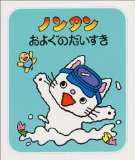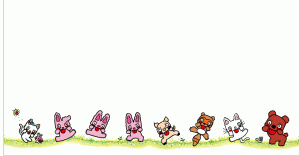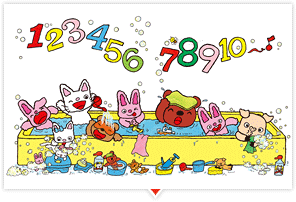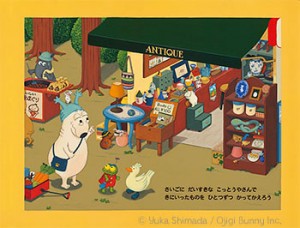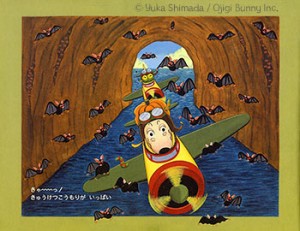Do you know “Nontan”?
Here’s one sample of Nontan.
The main character “Nontan” seems to be a cat, and I think this is a boy ( just a guess).
He has many friends like the rabbits,bears, birds and piggies.
The illustrator Sachiko Kiyono started this book in 1976 and she has died in 2008.
“Nontan” was read to many infants since the stories are about learning to get along with friends, how fun it is to swim, how wonderful it is to have your own birthday or celebrate one’s friend’s birthday, and so on.
It gave us Japanese kids ideas of basical important morals.
“Nontan” is not perfect and sometimes does mistakes but always somehow learns his lesson naturally through his experience, sometimes through his friends or sometimes from the weathers and sometimes he just realizes afterwards.
I have always loved his stories since all of them are very colorful and bright.
Even when Nontan is making mistakes, it doesn’t make you feel sad but make you feel like “what comes next? What is he going to learn from this??” You know that there is something better in the next few pages that always give you hope.
I can still remember how exciting I felt when I was reading this book as a young baby girl.
They are simple illustrations with simple stories but very profound.
* * * * * * * * * * * * * * * * * * * * * *
How about a complete original picture book,
your own story,your own message,
to your love ones, families and friends for,
Birthday, Wedding ceremony, Farewell party, and so on.
* * * * * * * * * * * * * * * * * * * * * *

